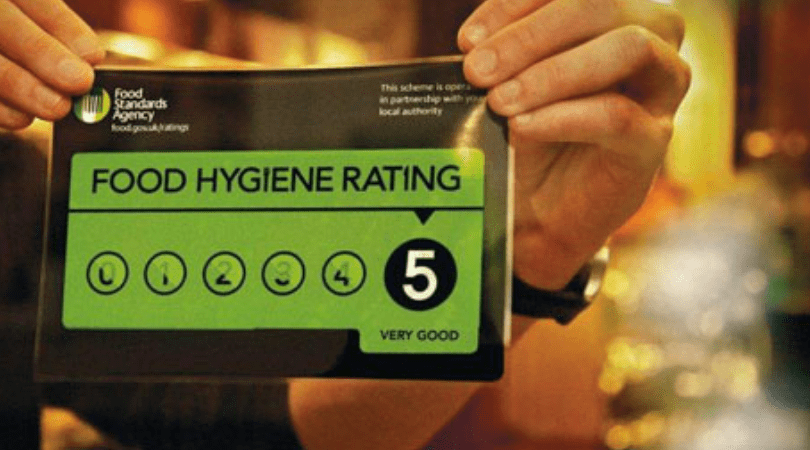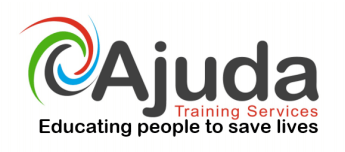This course defines behavioural safety and explains the origins of the concept. It covers how it can be implemented in the workplace and some of the potential benefits. It includes analysis of some examples of ‘at risk behaviours’ and some examples of ways you can measure how well your organisation is doing when it comes to safety. Finally it touches on some of the key laws regarding health and safety in the workplace and how to ensure positive workforce attitudes.
Number of modules: 5 Course Duration: 45 Minutes Course Price: £35
Course information

(Note: This is based on the video content shown and is rounded off. It does not account in any way for loading time or thinking time on the questions)
Category: Online Training
CDM Awareness
Course information
The Construction Design and Management Regulations cover the management of health,
safety and welfare when carrying out construction projects. Whatever your role in the
construction industry these regulations are there to improve your health and safety.
They are intended to ensure that projects are planned and run effectively and safely right
from the start.
This awareness course covers the core concepts of the regulations and details the various
roles that are required for a construction project along with the key documents that need to
be produced. It starts with an introduction to CDM, then covers some of the parameters that
need to be checked when a project is being planned. It finishes by detailing a number of
example projects that illustrate how the regulations can be applied.

Number of modules: 5
Course Duration: 40 Minutes
(Note: This is based on the video content shown and is rounded off. It does not account in any way for loading time or thinking time on the questions)
Course Price: £35
Working in Confined Spaces
Course information
At the end of this course you’ll be able to demonstrate your understanding of the control measures to be followed when working in, or near to, confined spaces as detailed in a safe working procedure.
This course will cover the legislation associated with working in confined spaces. What constitutes a confined space, the potential hazards, safe operating procedures, emergency procedures and rescue.
Important note: This is an awareness course only, designed for people who need to be aware of the hazards and risks of confined space working but are not required to enter a confined space. If you are required to perform any work activity in, or in the proximity of, a confined space then you will also need to have an ‘approved’ standard of practical training at the ‘appropriate’ level.

Number of modules: 4
Course Duration: 25 Minutes
(Note: This is based on the video content shown and is rounded off. It does not account in any way for loading time or thinking time on the questions)
Course Price: £35
Working Safely
Course information
Working safely is in the interest and concern of all staff – both the employers and employees. Although most of the legal duties fall to the employer, Health and Safety law is one of the few pieces of legislation that places duties on the employee as well. There are three reasons for managing risk at work that bring benefit for all concerned – moral; not causing harm to work colleagues, legislative; the law requires it! – And finally financial; all accidents bear a cost to both parties.
Workers have an expectation to go home at the end of the working day not having been injured by any workplace activity. Most workers feel that accidents are something that only happens to other people. The reality is that too many workers are coming to harm by not observing Health and Safety laws and not working to safe systems of work. That’s where our working safely course can help.
The course covers why we should work safely, defines hazard and risk, identifying common hazards, improving safety performance and protecting the environment. Training is a big part of changing attitudes towards taking risks in the workplace and can make a real difference.

Number of modules: 7
Course Duration: 150 Minutes
(Note: This is based on the video content shown and is rounded off. It does not account in any way for loading time or thinking time on the questions)
Course Price: £65
Working at Height
Course information
This course is aimed at anyone who undertakes work at height, or who employs people who regularly work at height.
The term work at height applies to a wide range of situations ranging from the obvious ones like working on platforms, ladders, scaffolds or stages to working alongside deep trenches. This is because the crucial thing to understand about work at height is that it’s not how far you climb, but how far you can fall. ‘Falls’ doesn’t just mean people falling from heights. If materials or equipment fall, that will obviously present an equally dangerous hazard to anyone below.
All working at height situations are covered by health and safety legislation. Chief among these is the Work at Height Regulations 2005. These regulations confer legal duties on employers and employees to assess, control and minimise risks and hazards from work at height.
This course covers topics including the dangers of working at height, the regulations, the hierarchy of controls, assessing risk and much more.
It’s vital to understand all this because as I’m sure you’ll know, working at height can be extremely dangerous.

Number of modules: 11
Course Duration: 105 Minutes
(Note: This is based on the video content shown and is rounded off. It does not account in any way for loading time or thinking time on the questions)
Course Price: £35
Abrasive Wheels
Course information
This course is aimed at anyone who uses abrasive wheels, or employs people who use abrasive wheels as part of their work.
There are a wide range of tools and processes that use abrasive wheels and ensuring these are used correctly and safely is of paramount importance. Applications range from hand grinding to disc cutting. They can be used at all stages of a work process, for making preliminary cuts and scores in materials, or for fine polishing and finishing.
Different wheels will have different properties and characteristics suitable for particular tasks. They also have different weaknesses and can pose different risks and hazards in handling and use. For this reason, it’s important that you always select the right abrasive wheel for the job and use it with the right machinery.
This course covers the anatomy of an abrasive wheel, the dangers associated with their use, Storage and handling and much more.

Number of modules: 11
Course Duration: 100 Minutes
(Note: This is based on the video content shown and is rounded off. It does not account in any way for loading time or thinking time on the questions)
Course Price: £35
Control of Substances Hazardous to Health (COSHH)
Course information
This course covers what you need to know about the Control of Substances Hazardous to Health (COSHH). It’s aimed at anyone who is exposed to Substances Hazardous to Health at work, as well as line managers with responsibility for such people.
So what do we mean by ‘Substances Hazardous to Health’?
In legal terms, these are substances that are classified as “very toxic, toxic, harmful, corrosive or Irritant” under the Classification, Labelling and Packaging Regulation (CLP). This was a new regulation that came into force in January 2009 dovetailing with a set of regulations called REACH. REACH is a European Union regulation concerning the Registration, Evaluation, Authorisation and Restriction of Chemicals, which came into force on 1st June 2007. One of the main aims of REACH is to provide a high level of protection for human health and the environment from the use of chemicals.

Number of modules: 10
Course Duration: 125 Minutes
(Note: This is based on the video content shown and is rounded off. It does not account in any way for loading time or thinking time on the questions)
Course Price: £35
Manual Handling
Course information
Manual handling, or to be accurate, incorrect manual handling, is one of the most common causes of injury at work. To try and combat manual handling problems, the Manual Handling Operations Regulations were introduced.
The Regulations lay out duties for both employees and employers. They give a general requirement that employees must be trained to manually handle correctly including the use of any equipment their employer provides to handle loads safely.
Training your employees with our online system will go a long way to giving them greater awareness of the dangers that poor manual handling poses, as well as covering safe handling techniques, practical solutions to manual handling issues and the use of mechanical aids.

Number of modules: 6
Course Duration: 75 Minutes
(Note: This is based on the video content shown and is rounded off. It does not account in any way for loading time or thinking time on the questions)
Course Price: £35
Infection Control
Course information
Infection prevention and control measures aim to ensure the protection of those who might be vulnerable to acquiring an infection…. Ok but why is this important?
Well every year at least 300,000 people develop a Health Care Associated Infection. This has a huge impact on the patient, the staff and the institution it occurs in. Whereas if there is good infection prevention and control, patients will have better health and more independence.
This course will start by defining infection prevention and control and explaining the impact of good and bad infection control. It then goes into detail about, the legislation that applies to infection control, the different types of microorganisms, how bacteria are transmitted, the chain of infection, and much more.

Number of modules: 7
Course Duration: 60 Minutes
(Note: This is based on the video content shown and is rounded off. It does not account in any way for loading time or thinking time on the questions)
Course Price: £25
Allergen Awareness
Course information
Allergies occur when the body’s immune system reacts to a usually harmless substance as though it is harmful. Why this happens, isn’t clear. However, most sufferers come from families that have a history of allergies, or related problems. Every year, the number of people with allergies is increasing so having an awareness of potential allergens and why they can be harmful is becoming more important, particularly if you work in the service industry.
This course covers general allergies, food allergies and food intolerances and explain the differences between them. It covers the 14 allergens controlled by legislation along with food additives and how they can trigger allergic reactions. It takes a detailed look at the symptoms of food allergies and takes in the wider picture discussing the current theories of why rates are increasing. It then finishes off by covering practical steps that can be taken to reduce the risk from allergens and also what steps can be taken both internally and externally to monitor the control measures.

Number of modules: 9
Course Duration: 100 Minutes
(Note: This is based on the video content shown and is rounded off. It does not account in any way for loading time or thinking time on the questions)
Course Price: £35
Achieving Food Hygiene Rating Level 5
Course information
In December 2008 the Food Standards Agency agreed a National Food Hygiene Rating Scheme. It is now running in all areas of Wales, Northern Ireland and in 99% of England.
In practice the rating scheme is designed to ensure that businesses that are broadly compliant with food law and are managing food safety risks will receive a rating of three … and those who are managing the risk well will receive a rating of four or five. However, significant lapses in any of the scoring criteria can also have a significant effect on the rating.
This course is intended to give you an overview of how the National Food Hygiene Rating Scheme works, what the scoring criteria are and how these are assessed by the inspectors, the appeals process, the Safer Food Better Business management system, E-Coli and concludes with some practical advice for ensuring your premises gets the best score possible.

Number of modules: 6
Course Duration: 50 Minutes
(Note: This is based on the video content shown and is rounded off. It does not account in any way for loading time or thinking time on the questions)
Course Price: £35
Food Safety Level 2 (Manufacturing, Catering & Retail)
Course information
Level 2 Awards in Food Safety are suited for anyone working in a catering, manufacturing or retail setting where food is prepared, cooked and handled. Typical environments may include:
• Pubs, hotels, restaurants;
• Supermarkets and retail environments;
• Food and drink manufacturers;
• Hospitals;
• Care homes;
• Schools;

Number of modules: 4
Course Duration: 75 Minutes
(Note: This is based on the video content shown and is rounded off. It does not account in any way for loading time or thinking time on the questions)
Course Price: £25



